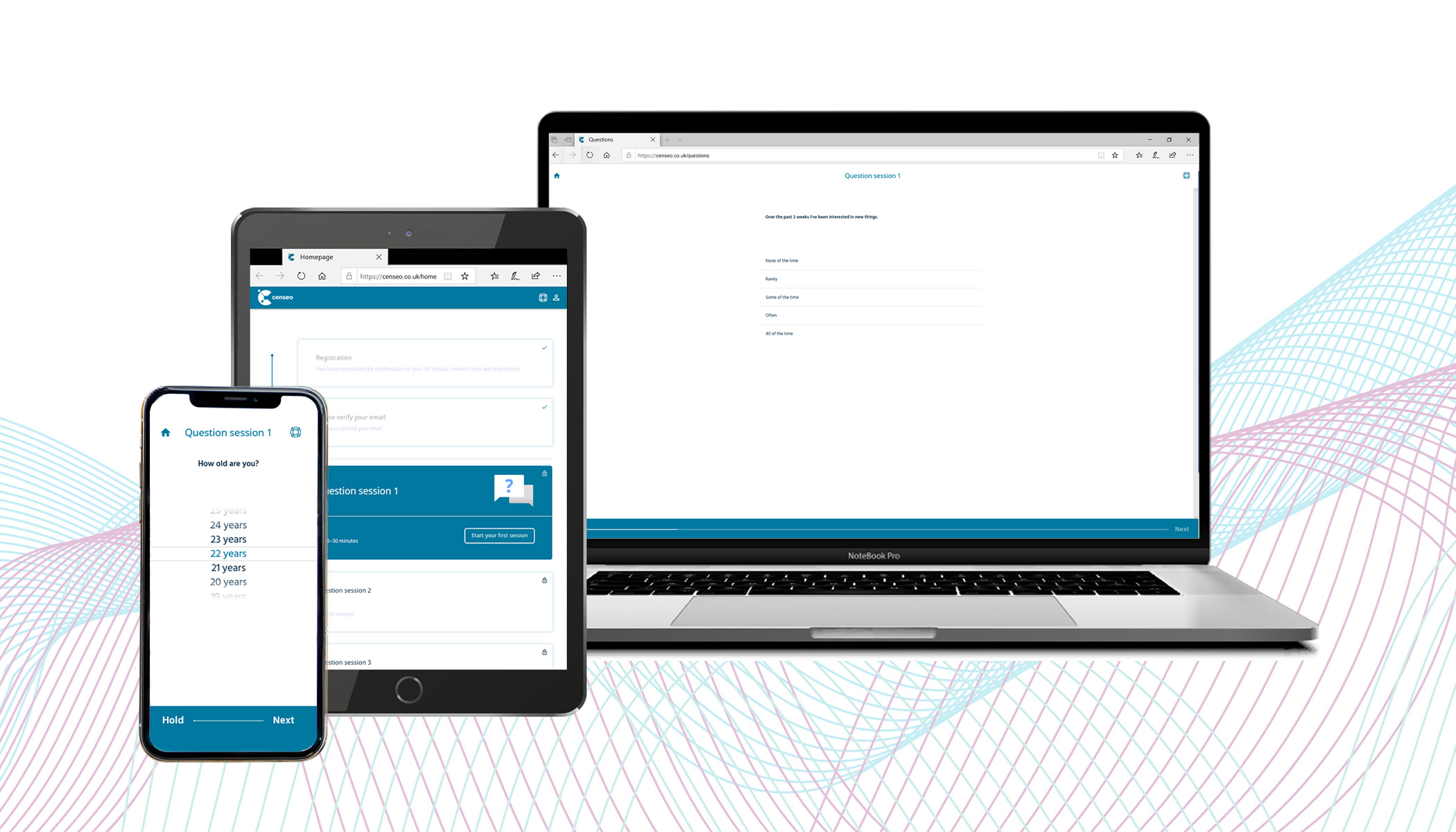Psyomics Ltd, a UK-based healthtech and University of Cambridge spin-out, has closed a £1.5 million funding round from existing and new investors to bring its mental health assessment and diagnosis platform, Censeo, to market in the UK. University spin-out specialists Parkwalk led the round, joined by fellow existing investors Jonathan Milner, Martlet, and Cambridge Enterprise.
Built on robust clinical foundations, Censeo mirrors the rich process of a face-to-face psychiatric assessment, guiding a user through a series of adaptive questions. Smart algorithms perform a detailed and bespoke analysis creating a ‘map’ of an individual’s mental health, providing diagnosis where appropriate and enabling a clear treatment pathway. Censeo supports GPs and clinicians in getting patients to the right level of support at the outset and provides patients with a stigma-free way to start addressing their mental health concerns.
Built on 20 years of clinical research—including The Delta Trial and feedback from service user groups, GPs, and clinicians—Censeo has been developed as a medical device from the outset and is fully compliant with the Medical Device Directive 93/42 EEC, ISO 13485, and NHS Toolkit.
The NHS is under increasing pressure to meet the nation’s mental health needs. GPs in particular are struggling to manage their increasing workload, with up to 30 percent of GP appointments in the UK relating to mental health. The COVID-19 pandemic has seen a rise in the severity of cases as individuals initially avoid contacting services for support. Identifying these cases early and referring them to the right treatment is vital.
Professor Sabine Bahn, Psyomics Co-Founder and Chief Medical Officer, commented:
“Diagnosing mental health issues correctly in primary care can be difficult, due to time constraints and the fact that mental health conditions can be masked by physical symptoms. Delays in diagnosing or misdiagnosis mean that it can take several years for an individual with depression to be correctly diagnosed. For bi-polar disorder the average delay is six to eight years. The consequence of this is that many people suffer unnecessarily from debilitating symptoms that could be successfully treated.”
“It is clear that faster and earlier diagnosis followed by the most appropriate treatment will improve the quality of life of affected individuals, while at the same time relieving pressure on the healthcare system.”

GPs are also seeing more patients entering primary care with mental health concerns that cannot be treated clinically, often related to lifestyle or socioeconomic difficulties. These patients benefit from being triaged to more appropriate support services. By accurately identifying and highlighting the individual’s mental health needs up front, Censeo increases efficiency across the entire mental health system while allowing GPs to focus on treating patients they can help.
Dan Cowell, Psyomics CEO and Co-Founder:
“This funding will enable Psyomics to support the UK’s plans to improve mental health provisions for the nation. Through giving patients, clinicians, and caregivers an earlier and clearer understanding of individual mental health needs, we believe we can make significant improvements in patient experience and clinical capacity, with positive impacts throughout the entire healthcare system. Our investors share our belief in the opportunity to make a genuine impact with Censeo.”










